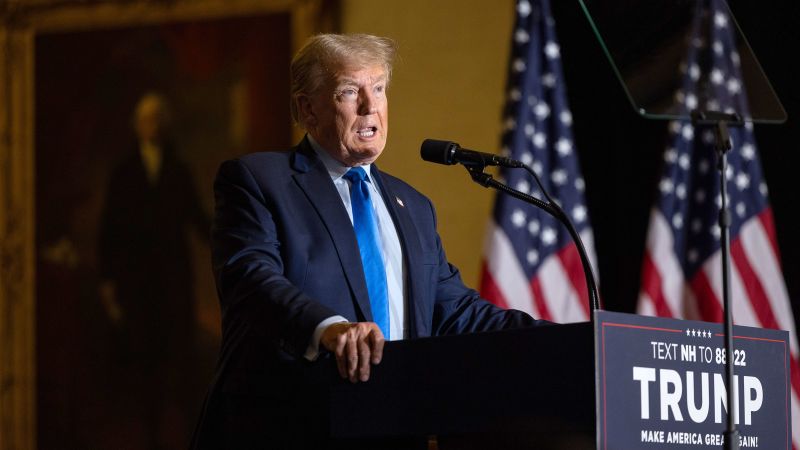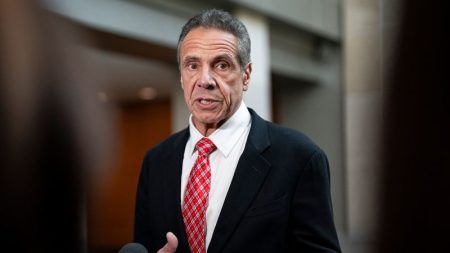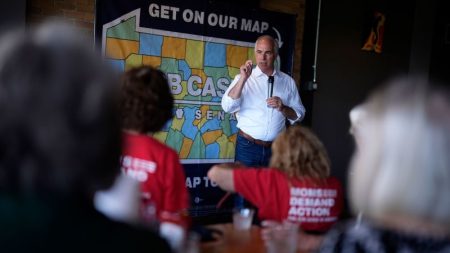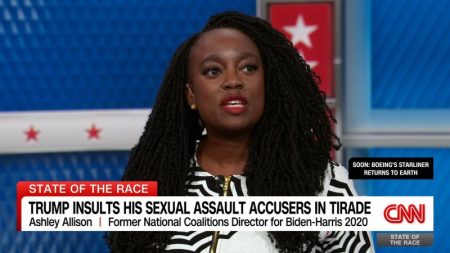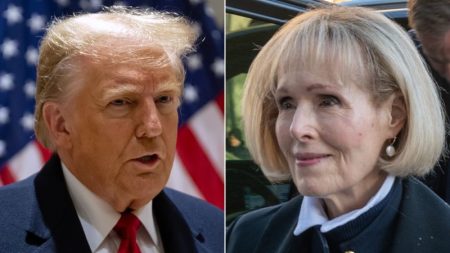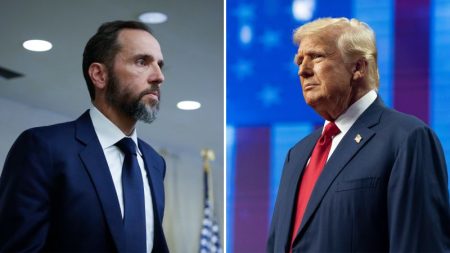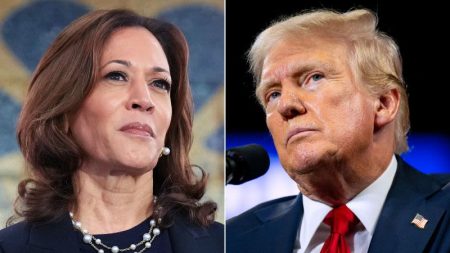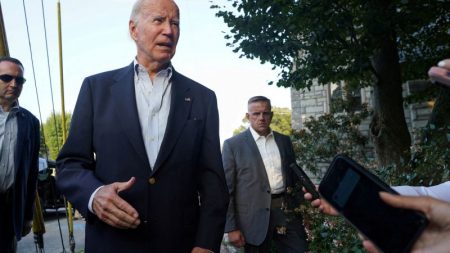A Colorado judge has rejected an attempt to remove former President Donald Trump from the state’s 2024 primary ballot based on the claim that he is constitutionally barred from office because of the January 6 insurrection.
The major decision issued Friday by Colorado District Judge Sarah Wallace comes after judges in Minnesota and Michigan also refused to remove Trump from that state’s Republican primary ballots.
These three high-profile challenges against Trump, which had the backing of well-funded advocacy groups, have so far failed to remove him from a single ballot, with the 2024 primary season fast approaching.
Legal scholars believe these cases will, in some form, end up at the US Supreme Court. But before that, the GOP and independent voters who filed the Colorado lawsuit in coordination with a liberal watchdog group, could first file an appeal to the Colorado Supreme Court.
Colorado election officials said any appeals need to be resolved before January 5, when they are legally required to certify the list of names that will appear on the March 5 primary ballot.
The 14th Amendment, ratified after the Civil War, says American officials who take an oath to support the Constitution are banned from future office if they “engaged in insurrection.” But the Constitution doesn’t say how to enforce the ban, and it has only been applied twice since 1919 – which is why many experts view these lawsuits as long shots.
Trump’s campaign has said these lawsuits are meritless attempts to deploy an “absurd conspiracy theory” to block him from office, especially when he has a commanding lead in the GOP primary and is doing well in head-to-head polls against President Joe Biden.
Citizens for Responsibility and Ethics in Washington, the group involved in the Colorado case, fell short against Trump but succeeded last year in enforcing the “insurrectionist ban” to remove a convicted January 6 rioter from a New Mexico county commission.
Beyond the disqualification attempts, Trump faces state and federal criminal charges in connection with his attempts to overturn the 2020 election. He has pleaded not guilty.
The case against Trump in Colorado revolved around his history of stoking political unrest, his public call for supporters to flock to Washington, DC, for a “wild” protest on January 6, and his instruction that they march to the Capitol and “fight like hell” to stop Congress from certifying Biden’s victory.
In the eyes of the challengers, these actions clearly rose to the level of “engaging in insurrection” against the US Constitution – which is the bar for disqualification set by Section 3 of the 14th Amendment.
The weeklong bench trial featured firsthand accounts from US Capitol Police officers who were wounded fending off the pro-Trump mob on January 6, video clips of Trump’s incendiary speech before the riot and testimony from an expert on right-wing extremism who said far-right brawler groups like the Proud Boys interpreted Trump’s words as “a call to violence.”
An attorney for the challengers, Sean Grimsley, said at closing arguments Wednesday that “the Constitution does not allow” Trump to return to office, no matter his standing in the polls.
“Our founders have made clear, time and again, that a candidate’s popularity does not supersede the Constitution,” Grimsley said. “The rule of law must apply whether a candidate has no chance of winning election or is a potential frontrunner. The application of Section 3 is at its most urgent when a person who has desecrated their oath to support the Constitution seeks the highest office in the land.”
Trump’s lawyers called witnesses who said his team tried to avoid violence that day and that he had authorized National Guard troops to keep DC safe on January 6.
Even before the trial, they unsuccessfully argued that the case should be thrown out because the allegations against Trump were largely based on his speech before the riot, which they claimed was protected by the First Amendment and did not meet the legal standard for inciting violence.
“They’re making up the standard so that it fits the facts of January 6,” Trump lawyer Scott Gessler said in his opening statement at the trial, adding that Trump “didn’t carry a pitchfork to the Capitol grounds, he didn’t lead a charge, he didn’t get in a fistfight with legislators,” but rather “gave a speech in which he asked people to ‘peacefully and patriotically’ go to the Capitol to protest.”
The trial was also a history lesson in the Civil War, the tumultuous Reconstruction era, the Congressional debate over drafting and ratifying the 14th Amendment, and the application of its insurrectionist ban.
Indiana University law professor Gerard Magliocca, perhaps the nation’s top scholar on the provision, testified in favor of removing Trump from the ballot. He explained how thousands of former Confederates were disqualified from office, including some who never took up arms, even one congressman-elect who had only written a letter-to-the-editor advocating violence against Union troops.
The provision says, in part: “No person shall… hold any office … under the United States … who, having previously taken an oath … to support the Constitution of the United States, shall have engaged in insurrection or rebellion against the same, or given aid or comfort to the enemies thereof.”
This story is breaking and will be updated.
Read the full article here
